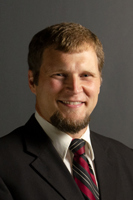

For many, October 31 will be a day spent celebrating, or at the least offering a hat-tip to, the world of darkness and fear. There will be thousands of children dressed as anything from ghouls, ghosts, goblins, zombies, werewolves, and vampires.
Many homes are presently adorned with witches, skeletons, spiders, and all other sorts of scary creatures. Young and old alike will pay good money and travel great distances to go to “haunted houses,” where they will encounter depictions of disemboweled people, severed heads, and various other forms of blood and gore.
For others, more innocent attempts will be made to “celebrate” Halloween. Many will dress as their favorite superhero or cartoon character, and there will no doubt be a plethora of church-hosted trunk-or-treat events.
I don’t intend to debate the merits of either choice, though I do have strong convictions on the matter. The Bible is clear that God’s people are to have nothing to do with works of darkness, and expressly forbids His children from engaging in things such as witchcraft (Exodus 22:18), familiar spirits and wizardry (Leviticus 20:6), occultic activity (Acts 8), sorcery (Acts 13), or other such activities.
However, I do understand that not all events on Halloween day are inherently evil, and various discussions concerning Christian liberty (Romans 14, 1 Corinthians 8) could certainly be in order. But I digress.
Rather than get bogged down in that debate, I would like to offer an alternative – Celebrate Reformation Day instead. After all, it is a day that contributes far more to the life of a believer than some pagan holiday ever will.
Unfortunately, most Christians will never give the historical event a second thought – if they even know about it at all.
On October 31, 1517, Martin Luther nailed his famous 95 Theses to the door of the Wittenberg Church in Germany. A reformation had begun in his own heart and life quite sometime before but little did he know, his act was about to completely reform Christianity on a global scale.
As a youngster, Luther was drawn to the monastic life, though at the behest of his father he began studying to become a lawyer. But by his early 20s, the draw religion had on his life proved too great, and Luther moved into an Augustinian monastery.
By his late 20s, Luther finished his studies and obtained a doctorate, and became a biblical studies professor at the university at Wittenberg.
During that time, in the early 16th century, European scholars and theologians began to question some of the doctrines of the Roman Catholic Church. This was brought about in large part because that period in history saw translations of the Bible and early Christian writings become more widely available to the common man.
Luther was among those who began to question Catholic teaching. He was convinced that according to Scripture, salvation is a gift that comes only by God’s grace, not dependent on any good works, and that the Word of God was the ultimate authority rather than the church. These two beliefs did not square with Catholic doctrine.
In particular, Luther had a problem with, and thus began to question, the sale of indulgences.
(It should be noted that many Catholics will deny the practice of indulgences. The Catechism of the Catholic Church on page 370, under section X, states: The doctrine and practice of indulgences in the Church are closely linked to the effects of the sacrament of Penance. What is an indulgence? “An indulgence is a remission before God of the temporal punishment due to sins whose guilt has already been forgiven, which the faithful Christian who is duly disposed gains under certain prescribed conditions through the action of the Church which, as the minister of redemption, dispenses and applies with authority the treasury of the satisfactions of Christ and the saints.” “An indulgence is partial or plenary according as it removes either part or all of the temporal punishment due to sin. The faithful can gain indulgences for themselves or apply them to the dead.” It may be that some individual Catholics do not believe in or practice indulgences, but that it is part of Catholic doctrine is undeniable.)
Luther’s questions, coupled with being troubled by his knowledge of the extravagance and corruption of the Pope and Catholic clergy, prompted him to post his famous 95 Theses, a move he hoped would encourage scholarly debate.
Rather than scholarly debate, however, a firestorm erupted. Catholic officials pushed Luther to defend his positions before an assembly. Luther wouldn’t back down and eventually the Pope himself declared Luther a heretic.
At the Diet of Worms in 1521 Luther was ordered to recant his beliefs and writings, which he refused to do. It was there he made one of his most well known statements. Luther declared
“Unless I am convicted by Scripture and plain reason (I do not accept the authority of popes and councils because they have contradicted each other), my conscience is captive to the Word of God. I cannot and will not recant anything, for to go against conscience is neither right nor safe. Here is stand, I can do no other, so help me God. Amen.”
Luther’s act sparked the Protestant Reformation which would expand throughout Europe, and eventually have far-reaching impacts on the spread of Christianity worldwide.
As Robert Rothwell, senior writer for Ligonier Ministries, wrote sometime back,
“Today, Luther’s legacy lives on in the creeds and confessions of Protestant bodies worldwide. As we consider his importance this Reformation Day, let us equip ourselves to be knowledgeable proclaimers and defenders of biblical truth. May we be eager to preach the gospel of God to the world and thereby spark a new reformation of church and culture.”
One thing is for certain. Celebrating the darkness will do nothing to promote a much-needed revival and reformation. But who knows, enough saints celebrating and thanking God for what He has done in the past, might be the spark needed to make it happen again.

